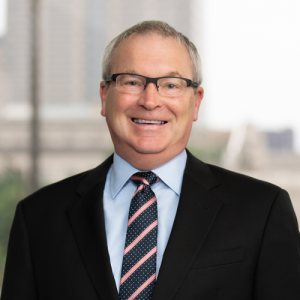On August 5, 2016, the Centers for Medicare & Medicaid Services (“CMS”) released a Survey and Certification Memo (“S&C Memo”) on protecting resident privacy and prohibiting abuse-related photographs and recordings by nursing home staff.¹ Recent news stories have reported nursing home staff taking unauthorized photographs or video recordings of nursing home residents, sometimes in compromised positions. The S&C Memo discusses a nursing home’s responsibilities related to the protection of residents from mental abuse that is caused by nursing home staff taking or using photographs or recordings to demean or humiliate a resident. A nursing home must develop and implement written policies that ensure the prohibition of all forms of abuse, including mental abuse. It also requires that, at the time of the next standard survey for both the traditional survey and Quality Indicator Survey (“QIS”), the survey team request and review nursing home policies and procedures that prohibit staff from taking, keeping and/or distributing photographs and recordings that demean or humiliate a resident.
Resident Rights to Privacy and Confidentiality
A nursing home resident has the right to personal privacy of not only his/her own physical body but also of his/her personal space, including accommodations and personal care. Taking photographs or recordings of a resident and/or his/her private space without the resident’s (or designated representative’s) written consent is a violation of the resident’s right to privacy and confidentiality. Examples include staff taking unauthorized photographs of:
- A resident’s room or furnishings (which may or may not include the resident);
- A resident eating in the dining room; or
- A resident participating in an activity in the common area.
The S&C Memo also provides that taking unauthorized photographs or recordings of a resident in any state of dress or undress using any type of equipment (like cameras, smart phones and other electronic devices) and/or keeping or distributing them through social media networks is a violation of a resident’s right to privacy and confidentiality.
Prohibition on Abuse
The S&C Memo requires a surveyor to investigate federal requirements related to abuse if a photograph or recording of a resident, or the manner that it is used, demeans or humiliates a resident, regardless of whether the resident provided consent and regardless of the resident’s cognitive status. A lack of response by the resident does not mean that mental abuse did not occur, and the surveyor should evaluate how a reasonable person would react under such circumstances.
A photograph or recording does not have to be distributed on social media to be considered abuse. Any unauthorized photograph or recording of a resident that has been taken, kept and/or distributed on social media or transmitted through multimedia messaging by staff may be considered abuse. Additionally, any photograph or recording, whether authorized or not, that humiliates or demeans the resident(s), including but not limited to distribution on social media, may be considered abuse.
Nursing Home Written Policies that Prohibit All Forms of Abuse
Each nursing home must develop and implement written policies and procedures that prohibit all forms of abuse, including mental abuse. The S&C Memo requires each nursing home to review and/or revise their written abuse prevention policies and procedures to include and ensure that nursing home staff are prohibited from taking or using photographs or recordings in any manner that would demean or humiliate a resident. Each nursing home must provide ongoing oversight and supervision of staff on these policies.
Nursing Home Training and Implementation on Abuse Prevention
The S&C Memo directs that each nursing home must provide training on abuse prohibition policies for all staff who provide care and services to residents, including prohibiting staff from using any type of equipment (like cameras, smart phones and other electronic devices) to take, keep or distribute photographs and recordings of residents that are demeaning or humiliating. Additionally, nursing homes must provide ongoing oversight and supervision of staff in order to ensure that policies are implemented as written.
Nursing Home Response to Abuse Allegations
The S&C Memo requires that each nursing home report all allegations of abuse, provide protections for any resident involved in the allegations, conduct a thorough investigation, implement corrective actions to prohibit further abuse and report the findings as required. Any time a nursing home receives an allegation of abuse, including the posting of an unauthorized photograph or recording of a resident on social media, the facility must not only report the alleged violation to the administrator and other officials but must also initiate an immediate investigation and prevent further potential abuse. Examples of procedures that a nursing home may put in place immediately to prevent further potential abuse include but are not limited to staffing changes, increased supervision, protection from retaliation and follow-up counseling for the resident. Should the report raise a reasonable suspicion of a crime committed against a nursing home resident, the Elder Justice Act requires a report to a local law enforcement agency and the state survey agency.
State Survey Review of Nursing Home Policies and Procedures
During the next standard survey, whether a traditional survey or QIS, the survey team must request and review nursing home policies and procedures related to prohibiting nursing home staff from taking or using photographs or recordings in any manner that would demean or humiliate a resident(s).
If the state survey agency receives an allegation related to the taking or use of photographs or recordings, the state survey agency must investigate onsite to determine whether a nursing home is in compliance with the federal requirements regarding unauthorized photographs or recordings of a resident by staff. Examples of psychosocial harm include extreme embarrassment, ongoing humiliation, degradation as a human being and fear or panic at the thought of the public or unknown persons accessing these types of photographs or recordings.
If a state determines that an individual has abused a resident or if the individual waives the right to a hearing (based on a preliminary determination of abuse), the state must report the findings in writing within 10 working days to:
- The individual;
- The current administrator of the nursing home in which the incident occurred;
- The administrator of the nursing home that currently employs the individual, if different than the nursing home in which the incident occurred;
- The licensing authority for individuals used by the nursing home other than nurse aides, if applicable; and
- The nurse aide registry for nurse aides.
Practical Takeaways
- Residents have the right to be free from abuse. Abuse includes conduct that causes or has the potential to cause the resident to experience humiliation, intimidation, fear, shame, agitation or degradation. Taking photographs or recordings of residents that are demeaning or humiliating and keeping or distributing them through multimedia messages or on social media are considered abuse.
- Residents have the right to privacy and confidentiality. Unauthorized photographs or recordings of residents and keeping or distributing them through multimedia messages or on social media are considered a violation of resident privacy and confidentiality.
- Every nursing home must develop and implement written policies and procedures that prohibit all forms of abuse, including mental abuse. These policies must prohibit the taking, using, keeping and/or distributing on social media or transmitting through multimedia messaging unauthorized, demeaning or humiliating photographs or recordings of residents.
- Effective immediately, state survey agencies are required to request these policies from a nursing home to evaluate compliance.
If you have questions or would like additional information about this topic, please contact:
- Todd Selby at 317.977.1440 or tselby@hallrender.com;
- Brian Jent at 317.977.1402 or bjent@hallrender.com;
- David Bufford at 502.568.9368 or dbufford@hallrender.com;
- Sean Fahey at 317.977.1472 or sfahey@hallrender.com; or
- Your regular Hall Render attorney.
Please visit the Hall Render Blog at http://blogs.hallrender.com/ or click here to sign up to receive Hall Render alerts on topics related to health care law.
¹ CMS, Survey & Certification Memorandum S&C-16-33-NH, Aug. 5, 2016 https://www.cms.gov/Medicare/Provider-Enrollment-and-Certification/SurveyCertificationGenInfo/Policy-and-Memos-to-States-and-Regions-Items/Survey-and-Cert-Letter-16-33.html.




